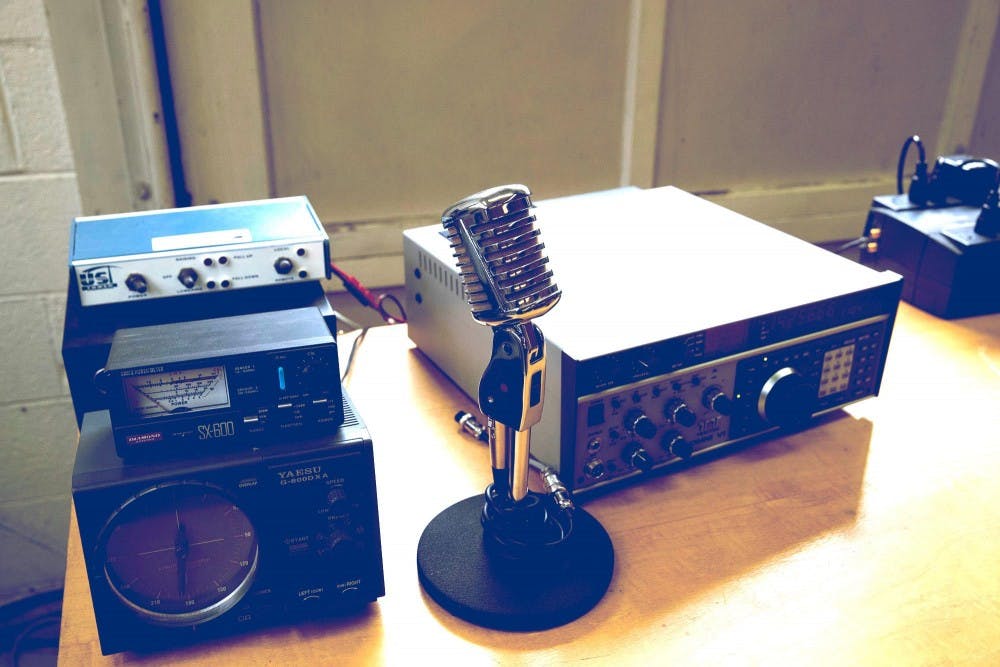“The Amateur Radio Club provides non-engineers and engineers alike an opportunity to learn the ins and outs of wireless communications,” Jesse Morgan, Amateur Radio Club president and Engineering graduate student, said.
He compares learning amateur radio to learning how to drive a manual transmission car.
“In an automatic car, the user turns it on and goes, never having to think about the mechanics of the movement,” Morgan said in an email to The Cavalier Daily. “HAM (Amateur) radio is an art form that affords one the opportunity to better understand the very thing our world revolves around now, wireless transmission of data.”
In order to facilitate this, the club usually meets weekly or bi-weekly.
“The meetings consist of hands-on training with the radio and 'making contact' with other radio operators around the world,” Morgan said.
According to the Amateur Radio Club website, the group is also partnering with the School of Engineering and Applied Science “to design, construct and operate an advanced ground station in support of the SEAS cubesat team and other cubesat projects.”
If current projects are successful, the station would be capable of communicating with the International Space Station, Morgan said.
Additionally, amateur radio is often used in emergency communications, especially when wired communications are taken out by natural disasters such as hurricanes or wildfires. Licensed operators are able to communicate messages between emergency services providers and can help coordinate first responders.
One of the goals of the club is to help as many people as possible obtain an amateur radio license. According to Mike McPherson, club trustee and assistant emergency coordinator for the Albemarle County Amateur Radio Emergency Service, there are currently around 743,000 licensed amateur radio operators in the U.S., and Morgan and McPherson hope to grow that number.
McPherson said amateur radio licenses are issued by the Federal Communcations Commission, and anyone can obtain one after successful completion of a written test. The test is administered quarterly in Charlottesville and more frequently in Richmond and the D.C. area.
“Three classes of amateur radio licenses are currently being issued — Technician, General and Amateur Extra,” McPherson said in an email to The Cavalier Daily. “The tests increase in difficulty as you move up in the license progression, and upgrading to a higher class of license confers additional operating privileges — mostly access to additional portions of the radio frequency spectrum.”
Being able to access a large portion of the radio frequency spectrum is one of the aspects of amateur radio McPherson finds most interesting.
“We have access to portions of the radio frequency spectrum from the wavelengths used by [Guglielmo] Marconi and his peers when radio was first being developed, all the way to the transition from radio to light,” McPherson said. “Each portion of the spectrum has unique and fascinating operating characteristics and technical challenges.”
In addition, amateur radio operators have a lot of freedom to experiment with and build on existing technologies to enhance communications. Operators are allowed a wide berth of creativity — they are able to design and build their own equipment, modify commercial equipment, design new communications technologies and create new computer hardware and software, according to McPherson.
Morgan hopes to boost club membership and license as many individuals as possible to increase enthusiasm for communications and electronics at the University.
“The club is certainly still in a state of infancy, but has the potential to bring together students from different academic backgrounds to get involved with and provide service to the University community, the City of Charlottesville and all who stand to benefit from amateur radio worldwide,” Morgan said.







